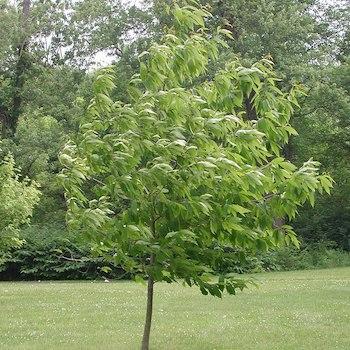A serious infectious disease nearly wiped out a beloved species in the United States. Scientists have now discovered how to bring it back. Should they restore this once prevalent species to its former glory?
Yes, of course! That's one of the primary goals of conservation and environmentalism.
Oh, what did you say? Scientists did it using biotechnology? Never mind. It's Frankenstein.
That's essentially the argument that's playing out in regard to the American chestnut tree. As is often the case, environmentalists are in favor of restoring the environment as long as scientists aren't involved.
The American chestnut tree was nearly wiped out by a fungal pathogen that was imported from Asia. The blight was detected in 1904, and within 50 years it had destroyed 90% of American chestnut trees, which had no natural resistance. (It is for the same reason that perhaps 90% to 95% of Native Americans were killed by smallpox, measles, and influenza.)
For multiple reasons, it has long been a goal to bring the American chestnut back. As Dr. William Powell and colleagues describe in a recent journal article, the American chestnut had ecological, economic, and cultural significance. The tree is large, long-lived, and fast-growing; was a good source of lumber and food; and served as the inspiration for songs and literary works. We roast chestnuts, not pine cones, on an open fire.
Using Science to Restore the American Chestnut
To make the American chestnut resistant to this particular fungus, Dr. Powell and his team genetically modified it with a wheat gene that encodes an enzyme called oxalate oxidase. Oxalate, a compound that also happens to form kidney stones, is produced by the fungus in cankers and eventually kills the tree. A tree modified to produce this enzyme destroys the oxalate, instead.
Dr. Powell's team is going about their efforts in the right way. To avoid creating a monoculture, they want to crossbreed their genetically enhanced chestnut with the remaining survivors in the wild. In this way, a genetically diverse population of blight-resistant trees can go forth and multiply. To ensure safety, the team is also working with the USDA, FDA, and EPA.
Going Nuts over Franken-Nuts
But as we have come to expect, none of this really matters to those who are ideologically (religiously?) opposed to GMOs. According to the Associated Press, opponents are worried about "a massive and irreversible experiment," whatever that means. Let's assume the worst happens and the blight resistance gene "escapes" into the environment. The result will be more plants resistant to fungus, hardly an ecological apocalypse.
Predictably, the anti-GMO (and poorly named) Union of Concerned Scientists -- which is really more akin to a union of fundraisers, PR flacks, political hacks, communications majors, and lawyers -- is deeply concerned about biotechnology. From the AP article:
"I think we have to step back and ask whether our ability to manipulate things is getting ahead of our ability to understand their impacts," said Gurian-Sherman, a former senior scientist for the Union of Concerned Scientists.
Perhaps we should take a step back and ask why journalists think the Union of Concerned Scientists speak for all scientists.
G-M-Oh Yes!
There is no legitimate reason to block Dr. Powell's project. Not only will the restoration of the American chestnut serve as a gigantic triumph for biotechnology, it will also help relieve public concerns over the safety of GMOs in the food supply. Likely, that's the real reason some environmentalists are opposed to this project.
They should be ignored. To shamefully appropriate a quote from The Economist, the GMO chestnut will help "take part in a severe contest between intelligence, which presses forward, and an unworthy, timid ignorance obstructing our progress."
Source: William A. Powell, Andrew E. Newhouse, and Vernon Coffey. "Developing Blight-Tolerant American Chestnut Trees." Cold Spring Harb Perspect Biol 2019; 11:a034587. doi: 10.1101/cshperspect.a034587




